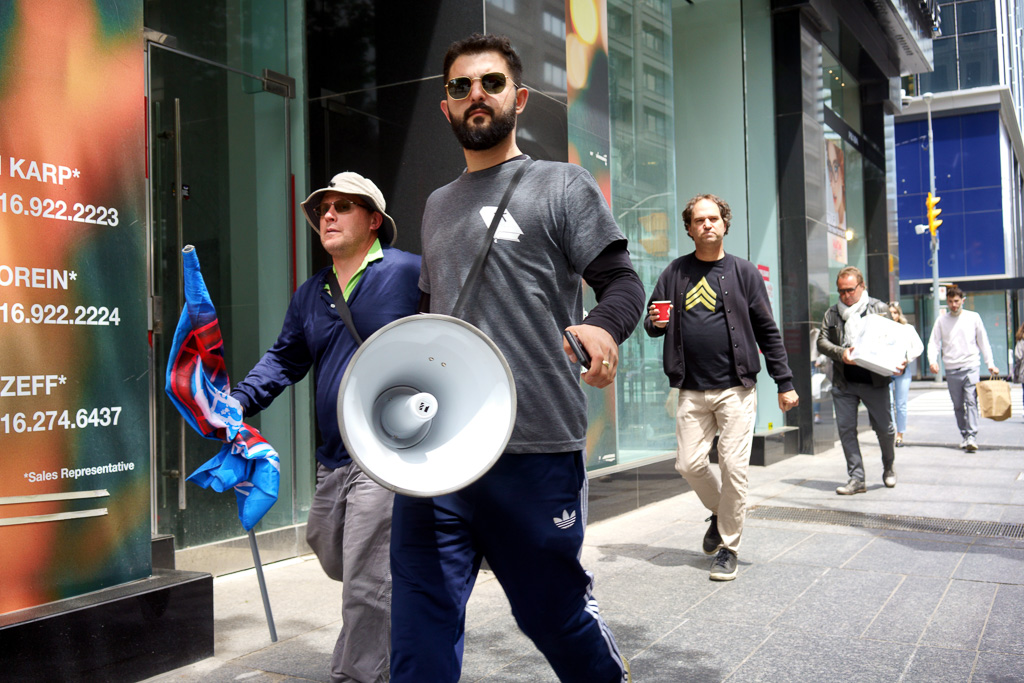Early in the pandemic, before I had figured out that anti-vaxx anti-mask anti-government anti-everything protesters were meeting every Saturday to stage their little marches, I would see people scurrying along the sidewalk who seemed out of place. For one thing, they were walking with purpose. Nobody walks with purpose on a Saturday in downtown Toronto except if it involves shopping. But these were no shoppers. I didn’t understand then that they were rushing to their rallying point where they would get themselves whipped into a frenzy before they took their message to the streets. For another thing, they came in their dozens with flags and signs and bullhorns. What good is a message if you can’t shout it loud to a shopping public?
Ah, freedom of expression, freedom of assembly, the basic freedoms that buttress a healthy democracy. Even though I vehemently disagree with these people, and even though I think their notions of civic engagement have all the subtlety of a collision with a planet-sized asteroid, I celebrate these moments. They remind me that I share these basic freedoms and, if I so choose, I can stand on a street corner and speak my mind without reprisal. They also remind me that, as part of the social contract, it is my responsibility to ensure that these people feel free enough to continue without reprisal as well.
My daughter went through a stage where she would ask me what things I grew up with that we don’t have anymore. Typically, I would answer with things like rotary phones and vinyl. If I had thought more closely on it, I might have flipped her question on its head and told her about things that didn’t exist then that exist now. Social media would top the list and, with it, certain ideas about civic engagement that have changed since we all became so attached to our iPhones. In particular, I am mindful of cancel culture, an idea that didn’t exist when I was my daughter’s age.
Forget for a minute that cancel culture is something people on the left do to people on the right or vice versa. Instead, abstract yourself from specific political leanings and view cancel culture as a structural problem. When people complain that they have been cancelled, they are telling us that they have been deplatformed. They still enjoy their freedoms; they just have no way to enjoy them. A classic example from 2021 was Twitter’s decision to cancel Donald Trump’s account. We’ve encountered similar events on a smaller scale closer to home. When anti-vaxx protesters tried to enter Toronto’s CF Eaton Centre, private security personnel enforced a mask requirement and prevented them from entering. It seems almost an incidental fact that Toronto police arrested two protesters for assaulting the personnel.
Both incidents illustrate that the constitutionally entrenched rights and freedoms that safeguard a democracy apply only to the relationship between citizens and the state. They aren’t binding upon private enterprise. Twitter owes nothing to Donald Trump. Cadillac Fairview owes nothing to the shoppers (or protesters) who enter its premises.
The problem with a world where civic engagement happens increasingly in privatized spaces (especially privatized virtual spaces) is that it is increasingly vulnerable to cancellation. Democracies, and the political thought that underpins them, hasn’t been able to keep up with this strange shift.
But I assure you, me and my camera will be there, tracking the moat that protects our ever-dwindling freedoms.
